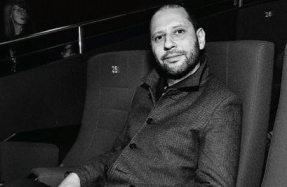MOVING THROUGH TIME


THE TWO FEATURES THAT THE 29-YEAR-OLD CHINESE director Bi Gan has completed in his young, astonishing career are at once alien and familiar. Even while calling to mind dozens of other films, the Locarno prizewinner Kaili Blues (2015) and the recent Cannes entry Long Day’s Journey Into Night are like nothing you’ve seen before. This paradox is central to the effect of Bi’s work, which engages, in both form and content, the slipperiness of time and the vagaries of memory. Akin to UFOs on the predominantly realist landscape of the festival circuit, his movies are even more incongruous against the backdrop of independent Chinese cinema, from which Western audiences tend to expect state-of-the-nation communiqués and sociopolitical critiques. Not that Bi’s films are untethered from reality—quite the contrary, they are rooted in a specific location and culture and, I would argue, generational sensibility. What sets him apart is his uncommonly bold and expansive quest to refine the filmic vocabulary of dreams and memories. Like many great filmmakers—from Alain Resnais and Andrei Tarkovsky to David Lynch and Apichatpong Weerasethakul, all of whom he recalls to varying degrees—Bi seems to believe that new realms of cinema are possible in making the immaterial material. It’s a challenge as old as the medium itself, but Bi takes a distinctly 21st-century approach, bringing to bear the tools of digital cinema and the fruits of easy-access cinephilia.
In only two films, Bi has established a world entirely his own, centered on his native province of Guizhou in southwest China. At first glance, his
You’re reading a preview, subscribe to read more.
Start your free 30 days



